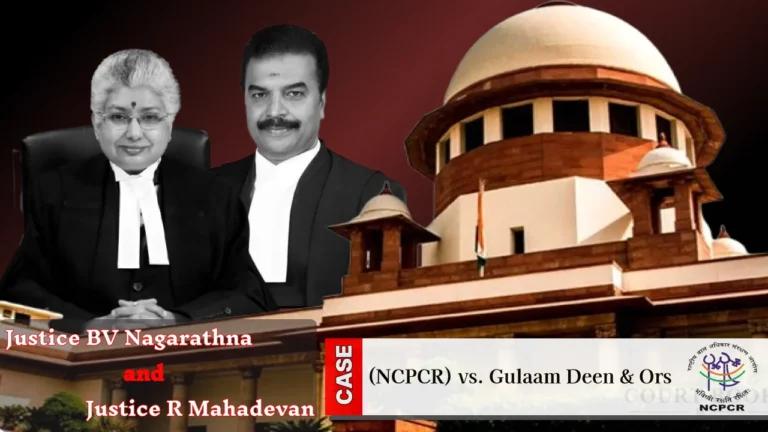The Supreme Court on Tuesday dismissed a plea filed by the National Commission for Protection of Child Rights (NCPCR) that had challenged a Punjab and Haryana High Court ruling allowing a 16-year-old Muslim girl to marry under personal law.
A bench of Justice BV Nagarathna and Justice R Mahadevan made it clear that the child rights body had "no locus standi" to interfere in the matter. The judges remarked,
Read also:- Supreme Court Sets Aside Bank of Baroda Dismissal: Upholds Principles of Natural Justice
"If the High Court has granted protection to the couple facing threats, how can the NCPCR question such an order? It is strange that the Commission, meant to protect children, is challenging it."
The bench stressed that no legal issue arose from the case, adding,
"We fail to see how NCPCR can be aggrieved. Such orders under Article 226 are meant to protect life and liberty."
Read also:- Karnataka High Court Rules POCSO Act is Gender Neutral, Upholds Charges Against Woman Accused
The High Court had earlier granted protection to the couple after the girl’s family allegedly detained her. Relying on Muslim Personal Law, the court held that a girl who has attained puberty can enter into a valid marriage. Referring to Sir Dinshah Mulla’s Principles of Mohammedan Law, it noted that puberty is presumed at 15, and the girl being over 16 was competent to marry.
Read also:- Delhi High Court Stays Defamation Decree Against HT Media in Rs. 40 Lakh Damages Case
The NCPCR argued that the order effectively permitted child marriage and went against the Prohibition of Child Marriage Act, 2006 and POCSO Act, 2012, under which consent below 18 is invalid. However, Justice Nagarathna highlighted that such “romantic cases” involving teenagers should not be equated with criminal cases, cautioning against misuse of POCSO by families.
With this, the apex court dismissed not only this petition but also three other similar pleas filed by NCPCR.
Case Title:- National Commission for Protection of Child Rights (NCPCR) vs. Gulaam Deen & Ors.














